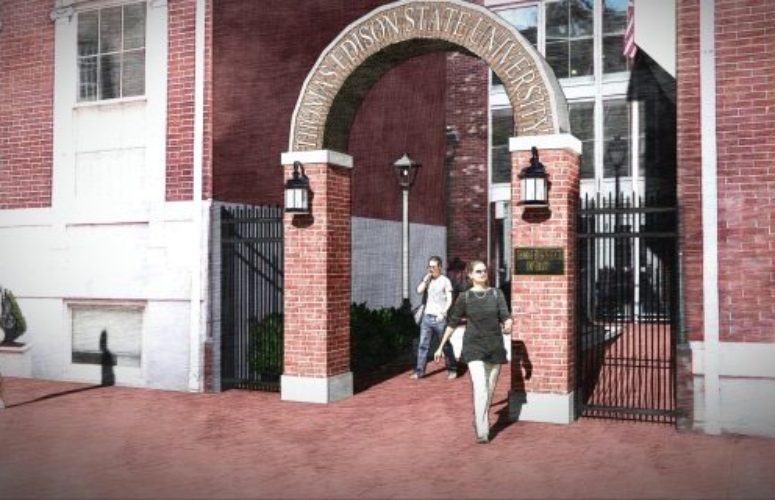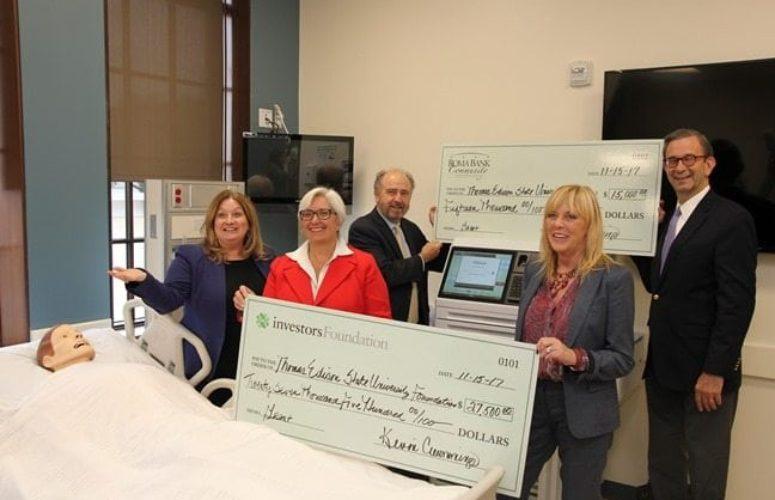
Thomas Edison State College Gains University Status
On Jan 11, 2016Thomas Edison State College, New Jersey’s only institution dedicated exclusively to serving adult students, is now Thomas Edison State University.
In December, New Jersey Secretary of Higher Education Rochelle Hendricks granted university status to Thomas Edison State College. At its December board meeting, the College’s Board of Trustees approved a resolution authorizing the institution to change its name to Thomas Edison State University. The change became official on Dec. 21.
“We have evolved into a large, comprehensive institution with diverse academic offerings that serve a wide range of students and organizations – here in New Jersey, throughout the country and around the world,” said Dr. George A. Pruitt, president. “For us, being known as a university is important because it more accurately describes the type of institution we have become and better reflects the success we have had expanding our graduate programs.”
The action comes approximately one year after the school began the process to secure state approval for gaining university status. New state regulations governing higher education in New Jersey, which took effect Dec. 21, and a unanimous decision in November by the New Jersey Presidents’ Council recommending the name change, helped pave the way for the College to gain university status.
To commemorate the change from college to university, the institution plans to erect a brick archway over the main entrance of its Kelsey/Townhouse complex, which serves as the university’s executive center. University signage will be installed at each of the school’s eight campus buildings located in the capital city’s State House Historic District.
It is a long way from July, 1972, when the school was established as Edison College. The first class included 70 graduates who earned Associate in Arts degrees.
“We really invented what has come to be known as the portfolio process as a way of examining prior learning and determining if it is equivalent to what is learned in a college course,” said William J. Seaton, provost and vice president. “We were also the first regionally accredited institution in the country to offer an entire degree program completely online. Once we opened those widows, it became a game changer.”
Today, the University continues to break new ground in higher education as it enables adult learners to access undergraduate and graduate courses and leverage prior learning to earn credit using a variety of devices and platforms, regardless of their location. The institution’s core work and mission – creating flexible, high-quality, collegiate learning opportunities for self-directed adults – continue to be relevant as increasing access to higher education and higher education attainment remain national issues.
Several studies, such as the Lumina Foundation’s “It’s Not Just the Money: The Benefits of College Education to Individuals and to Society,” indicate that the benefits of college completion go beyond higher wages.
“The work we do to help adults finish their undergraduate degree and advance their education at the graduate level is more important than ever,” said Pruitt. “We remain committed to serving our students in ways that fit their lives by providing them with high-quality, affordable programs that combine academic integrity with flexibility.”
The change to Thomas Edison State University marks only the third time in the institution’s history that it has changed its official name. The first came in 1973, when the school changed its name to Thomas A. Edison College. The second came in 1980, when it became known as Thomas A. Edison State College.
Today, the university serves more than 18,600 students from all 50 states and internationally who are enrolled in undergraduate and graduate degree programs in more than 100 areas of study. With more than 50,000 alumni from every state and more than 70 countries, Thomas Edison State University has produced leaders in government, business and industry, private enterprise, the performing arts, sports, the military and education.
Related Articles:





